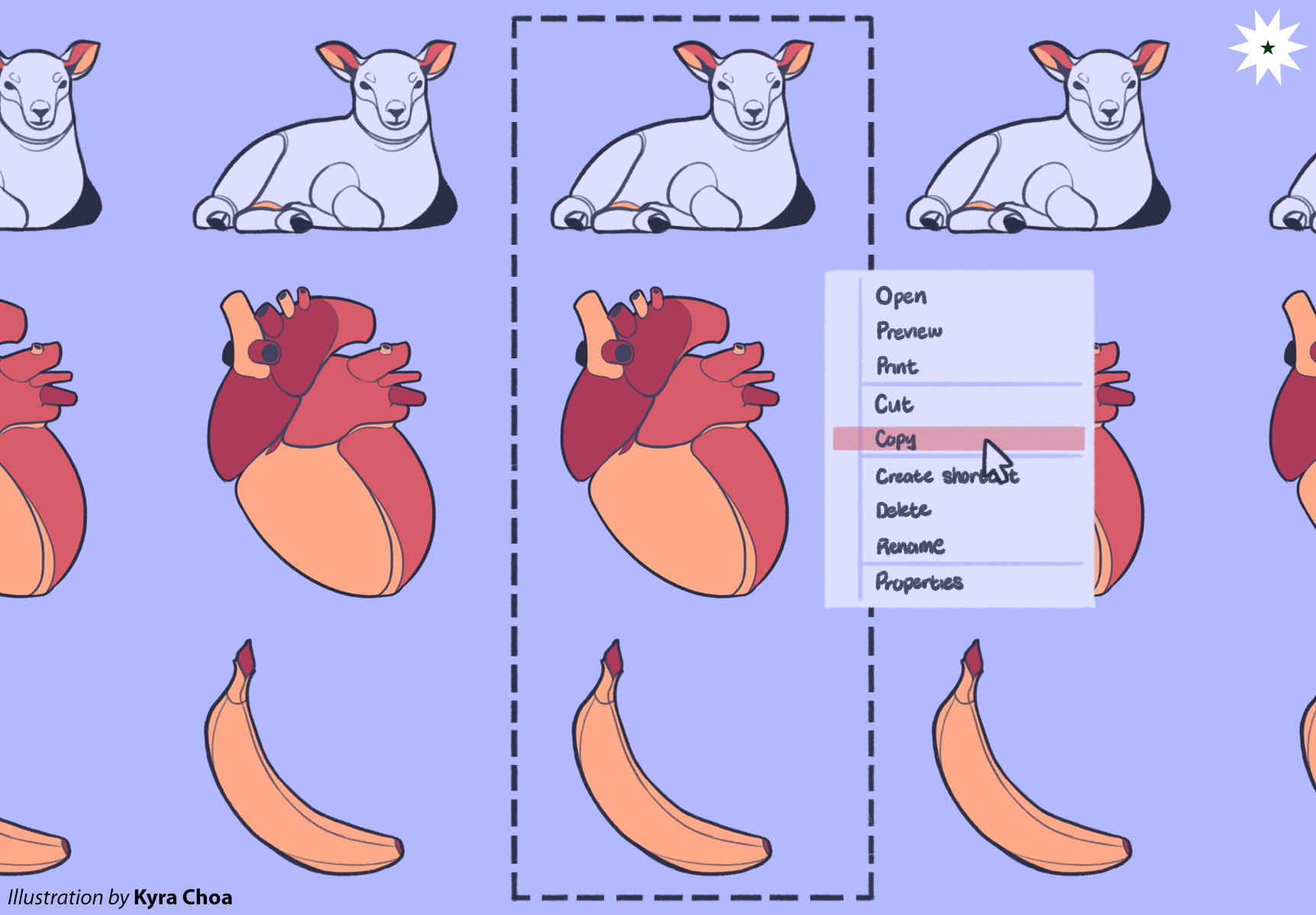It has been 23 years since the birth of Dolly, the sheep known to the world as the first mammal to have ever been successfully cloned through adult cell cloning—a cloning process which requires the replacement nucleus to come from an adult cell instead of an embryo.
Originally part of a series of experiments led by Ian Wilmut to develop better methods in producing livestock and decreasing the need for actual animals in experimentations, The Roslin Institute in Scotland—the organization that handled Dolly—later found themselves being the subject of public scrutiny when they announced her existence on February 1997, a year after she was born.
Considered to be both a controversy and a scientific breakthrough, Dolly’s creation showed the world how vital biotechnology is in opening up new opportunities in the fields of medicine and agriculture.

Naturally unnatural
Doubles are more prevalent in society than we think. From average products such as bananas to animals such as cows and pigs, Dr. Chona Abeldo, a researcher in the Practical Genomics Laboratory of the Center for Natural Science and Environmental Research, notes how there are a lot more clones than people are familiar with.
Often associated with “playing God”, cloning has always been shunned by society for its reduced sense of individuality and unnatural process. Yet, Abeldo states that “almost everything in the modern world right now is unnatural.” From the chemical additives in meals to seedless grapes, she expounds that what people eat on a day-to-day basis have all been tampered, one way or another.
Compared to other developments in the biotechnology field such as gene editing, Abeldo claims that cloning is actually among the simplest processes. “It’s a scientist plagiarizing nature. You’re just copying and pasting,” she declares.
The technology does not stop there. Abeldo clarifies that while whole organism cloning has been featured prominently in movies and TV shows, science has been using the process for something better: organ cloning.
“That’s actually the biggest misconception about it. You can clone cells, you can clone organs—and in its purest sense, the greatest application of cloning in the medical field is creating a clone of an organ—of a person—and removing its imperfections,” she clarifies.
Adding to her
statements, she explains that patients in dire need of an organ transplant
often face the problem of finding the right donor with a compatible organ.
Abeldo states that cloning can eliminate this factor entirely, saying, “The
organ that you’re transferring is still yours, except
it’s perfected.”
Yet cloning is not without its own problems. Products such as bananas face the problem of reduced genetic diversity, a vital factor in gaining immunity to pests and diseases. Abeldo admits, “It’s pretty scary, but that’s the risk of cloning.” However, she points out that while agricultural clones could experience this disadvantage, organ cloning does not.
Ethics and the ‘greater divide’
Abeldo acknowledges that cloning can be medically advantageous, but only when put in the proper hands. “We should be fully aware that society is not equal,” she presses. Even if certain trends are, in its purest form, “good”, Abeldo reminds that there is still a chance of people wrongly taking advantage of the technology.
“We have to be aware that when [we] introduce a technology, [we have to ask ourselves if we are] going to equalize the sexes, the classes, or [if] we [are] just [going to] promote a greater divide,” she states.
To questions and controversies regarding the ethics of cloning, Abeldo responds, “The issue with how [people] interpret ethics is whenever they introduce their own world view, specifically [on] religion, in [its] interpretation.”
She furthers that one should look back at the core principles presented by the Belmont Report—a document summarizing principles and guidelines involved in research studies utilizing human subjects—which include respect for persons, beneficence, and justice. Abeldo explains that as long as information about the product is transparent, does no harm, and benefits the human race, then there should be no problem.
Knowledge never sleeps
The scientific field in the Philippines is booming, with Abeldo disclosing how the Department of Science and Technology has spent billions of pesos on the creation of technology for the market. “Biology doesn’t have to be so delimited,” she reiterates, adding how collaborative efforts with DLSU’s Biology Department and the College of Computer Studies have begun creating products that aid Filipino fishermen in their daily work.
Abeldo declares, “If you’re a scientist, no matter where you are in the world, you cannot stop learning.” In this day and age, she states that it is more prudent to learn new things, with scientists always needing to be on their feet on the verge of new scientific discoveries.
“We can’t rest on our laurels. There’s no such thing,” she states.
